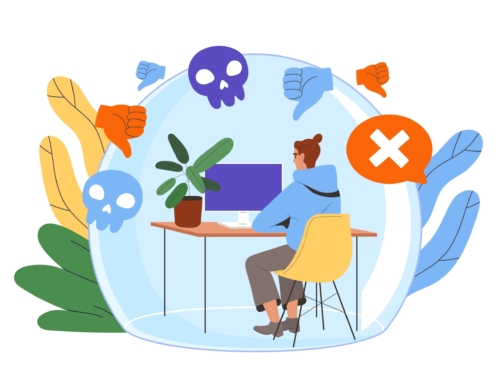Coaching is growing, and its growing at a great rate of knots. From a coach’s point of view, its easy to see why. Companies are so busy, managers have ever increasing demands (do more with less) that taking time out to mentor and coach people internally is a time and focus challenge most organisations are not capable of and aren’t prioritising. Companies used to develop their people in house, but now there seems to be less time & resources to support it.
Usually for most businesses, the next option is sending people to training courses at an external provider. This may help to increase a person’s knowledge and understanding, but the gap is in the ‘doing’ . Very few training programs take the time to actually develop competency in soft skills.
Soft skills are complex and require time and practice to develop effectively,
these skills can’t be learnt in a time constrained training program,
especially one that is outside the business,
and one which doesn’t take into consideration the core business context.
As an example, I think of all the programs and courses I’ve seen, read about and have attended on the topic of time management. It seems to be a simple skill to master, generally speaking there are only 3 things to do with your daily tasks:
1. Delegate it
2. Priorities it and start at the top
3. Stop doing it
Yet despite the simplicity of this structure, most people never move from knowing and understanding time management to developing a competency in it. That is because, the application of these simple statements is complex, difficult and requires some fundamental personal change.
We strongly recommend a business invest in using a coach.
This means the individual is now working with someone who can help translate ideas and knowledge into action,
in a way that works best for the person,
in their current environment,
and that must fundamentally change the way they work.
This is the role of the coach, whether it is on the sporting field, in business or for personal development.
It’s a fact, that the higher up the organisation you climb, the less you focus on technical skills and the more you start to focus on soft skills. These might include managing a team, leading a project, directing people, creating a team, supporting and developing your subordinates and the list goes on. Soft skills are the oil of the business, if technical skills are the engine. The key difference is that technical skills are generally measurable, predictable, and logical, whereas soft skills are subject to much more variation; as much as the number of people in your stakeholder group. This makes developing competencies in soft skills more challenging than learning how an engine works.
At Career Life Transitions, we coach people in three main areas:
- Coaching for development into a new role (internally or externally triggered)
- Coaching for unique challenges in the current role
- Coaching for ongoing development in the current role
Case 1: Coaching for development into a new role (internally or externally triggered)
For many people, looking for progression in their career is natural. Generally there’s a natural tendency to accept that you may start in an entry level position or similar, but as time goes by you expect to ‘climb the ladder’ and accept more responsibility and more responsible roles. More responsibility usually means moving into a role where you now may have people reporting to you and you are now being noticed by people higher up the organisation.
When we met Jane, she was recognised by her leadership team as an outstanding engineer, and it was an easy decision to promote her into a management role within the organisation. This naturally meant that Jane now had more administration, management and people responsibilities than her previous role. Jane was sent on a number of management training courses, and provided with a range of excellent management training ideas and knowledge, however, it was now up to her to work out for herself where to apply these complex management theories in the workplace. The situation never quite aligned to the examples she was given, she didn’t know what to apply when, she wasn’t sure if the situation was a symptom or the route cause and the list goes on.
Supporting Jane through 1:1 coaching, we were able to investigate her real strengths and opportunities for improvement, focus on what skills she needed in her particular work environment, guide her using the 80/20 rule and support her as she attempted to change some of her basic natural behaviours to get a better outcome for herself and ultimately the organisation.
Case 2: Coaching for unique challenges in the current role
Brett has a long tenure within a large organisation, progressing into a middle management role with a number of reports. Due to a range or environmental and economic reasons the organisation has gone through massive changes and, understandably, Brett has struggled. The employee base is not happy with the rate of change or the fundamental changes to their work environment, and, as the face of management, Brett has faced the full brunt of this discontent.
Brett is excellent at his job, but has not been trained or prepared for the tumultuous and turbulent management environment he found himself in. Career Life Transitions were invited to support Brett by assisting him to cope initially, then adapt to, and finally feel comfortable in the new working environment. Brett did not have the skill set to be able to recognise & change on his own accord, and nor did an external course on Change Management assist. Brett needed some practical, fit for purpose, impactful advice to apply to his situation to create a breakthrough in his thinking to enable him to deal with the situation and transform into a position where he could gain credibility and regain managing his team after the complex changes.
Case 3: Coaching for ongoing development in the current role
Adriana is a high flyer, at the top of her game, delivering outstanding results. In a Senior Management role with a large reputable firm, she is operating in a very dynamic, complex and fastmoving environment, however, she feels something is holding her back. Is it her? Or her attitude and focus? Or perhaps her stakeholder management skills or the relationship with the new board? These questions are not easy to answer when you’re at the top and have no one to refer to or bounce ideas off.
Career Life Transitions supported Adriana in gaining clarity of thinking, removing assumptions and defining facts relevant to her. Through 1:1 coaching Adriana’s transformation was gained through self awareness and the impact she had on those around her. We gained facts by analysis of the structure of the organisation, reporting lines and key stakeholders, so that we could ensure she most current, factual and relevant information to enable her to make key decisions to move forward.
With support from her coach, Adriana was able to gain awareness of her constrictive thinking pattern and make positive changes to lift herself out of this negative pattern. She was then able to broadly evaluate her environment and further grow from the experience, assisting not only her but also the organisation.
Conclusion
In each of these cases, the complexity of the situations meant direct intervention and support were the only real activities that would break the mental deadlock for the individual. Classroom, online or other types of group or self learning were not enough.
Increasing knowledge without competency only makes the environment more complex, not simpler.
Coaching helped the individuals reset themselves, discover more about themselves, and allowed them to apply and check new ways of thinking and working (with somewhat of a safety net)
Coaching is about a fundamental shift in the way of thinking, as Einstein once said
“the type of thinking that got us into the problem is not the thinking that will get us out”
For further information on how a professional coach can help you & your business transform, please contact us for a confidential conversation.














Dr Susan Roberts says: